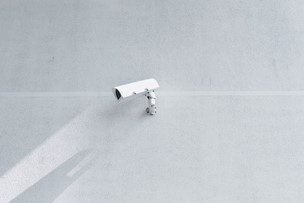- Hyderally & Associates P.C | Employment Lawyers NJ, NY
- (973) 509-8500
- tyh@employmentlit.com
Facial Recognition Technology Provides Avenue to Refuse Service

NJIT Police Officer Can Use Special Arbitration to Appeal Termination
December 26, 2022
New York Outlaws No-Fault Attendance Policies at Work
January 5, 2023By: Ty Hyderally, Esq., Jennifer Vorih, Esq., and Tom Daly.
James Dolan, CEO of MSG Entertainment, has recently faced backlash for denying entry to two attorneys based on their association with law firms involved in litigation against MSG Entertainment:
- Kelly Conlon, an associate attorney at New Jersey based Davis, Saperstein and Salomon, PC, was denied entry to Radio City Music Hall as she was chaperoning her daughter’s Girl Scouts field trip to see the Rockettes last week. Conlon’s firm – but not Conlon herself — has been involved in an ongoing personal injury lawsuit against a restaurant which is under the MSG Entertainment umbrella.
- Alexis Majano, an associate attorney at New York based Sahn, Ward, Braff, Koblenz, PLLC, was kicked out of a Knicks basketball game at MSG after security pulled him aside while he was on his way to find his seats. Majano’s firm recently filed a lawsuit on behalf of a fan who fell from a Skybox at MSG during a Billy Joel concert.
Private businesses have always had the right to refuse service to customers for nondiscriminatory reasons, and MSG’s reasons for excluding Conlon and Majano may not have been discriminatory. What makes these recent cases interesting is how the lawyers were identified. Both attorneys were flagged by MSG Entertainment’s facial recognition software: Conlon as she was making her way through a security checkpoint, and Majano as he was on an escalator heading to his seat. Each attorney reports that security knew their name and law firm before they could even get a word out. Both of them had purchased tickets, but it is unclear whether they received refunds.
New York law does not prevent MSG Entertainment from using facial recognition software for security purposes, but recently enacted statutes do speak to how commercial establishments may use the information this technology gathers on their customers. New York City has a local statute governing the use of Biometric Identifier Information (“BII”) by commercial establishments. NYC Admin. Code §§ 22-1201 – 1205. The law became effective July 9, 2021, and was current at the time the attorneys were denied entry to the events. Under § 22-1202(a), any commercial establishment which collects or retains BII of customers must disclose the activity by placing a “clear and conspicuous” sign at all customer entrances, which clearly notifies customers that their BII is being collected. NYC Admin. Code § 22-1202(a). The law also prohibits the sale of BII. NYC Admin. Code § 22-1202(b). The statute provides a private right of action, but only after the aggrieved party provides the commercial establishment with notice and an opportunity to cure. NYC Admin. Code § 22-1203.
At first glance, MSG Entertainment is not in violation of any law. Radio City Music Hall displayed posters at the security checkpoint where Conlon was denied entry, and her firm was notified twice by MSG Entertainment that its attorneys were banned from MSG events. Similarly, Majano’s firm was also on a list, provided to him by a security guard, of law firms that were banned from MSG events. In a statement to the NY Post, MSG Entertainment said “All impacted attorneys were notified of the policy. We continue to make clear that impacted attorneys will be welcomed back to our venues upon resolution of the litigation.”
While facial recognition software certainly presents some privacy concerns for unsuspecting customers, private businesses in the United States are legally allowed to refuse service to any customer, as long as the refusal is not due to illegal discrimination. For instance, patrons are often denied service for safety concerns like intoxication or for improper mask use during a public health emergency. Businesses may also deny service to customers based on their own dress code standards (“no shoes, no shirt, no service”) or other self-imposed rules.
Thanks to federal laws like the Civil Rights Act of 1964, and the Americans with Disabilities Act of 1990, businesses which are open to the public may not discriminate based upon race, national origin, religion, sex, age, disability or veteran status. These laws cover “places of public accommodation,” which include private businesses that regularly invite the public into their establishments, such as bars, restaurants, hotels, stores, theatres, and banks.
In addition to federal law, New York City and the State of New Jersey have broadened the definition of unlawful discrimination to cover more types of individuals. Both the New York City Human Rights Law (“NYCHRL”) and the New Jersey Law Against Discrimination (“NJLAD”) offer protections to individuals for discrimination based on gender, gender identity, marital status, breastfeeding, sexual orientation, and military status. See NJSA § 10:5-12(f)(1); NY CLS Exec § 296(2)(a). Both of these laws, and their federal counterparts, make exceptions for businesses that are distinctly private by nature, such as private clubs or private schools operated by bona fide religious institutions. Additionally, some places that are reasonably restricted to individuals of one gender – such as dressing rooms or bathrooms – may deny access to individuals based on their gender, so long as they allow people to enter based on their gender identity or expression. These laws have been amended and updated numerous times to account for emerging public policy concerns, and for additional classes of people deserving protection from discrimination.
There remains a question of whether a commercial establishment may lawfully discriminate against customers based upon their employment affiliations. Seemingly, they can. Conlon’s firm plans to sue MSG Entertainment, though under a violation of privacy theory rather than discriminatory denial to a place of public accommodation. Rob Abiuso, a partner at the firm where Majano works, also says he is contemplating legal action against MSG Entertainment. “This is palpably improper,” he said. “Prevent me from going in, I’m the attorney [on the case],” he said. “But to indict the entire firm?”
If you or someone you know has been refused service at a place of public accommodation, you may want to contact Hyderally & Associates to see if we can be of help.
Read more about Conlon’s Story here: https://www.nbcnewyork.com/investigations/face-recognition-tech-gets-girl-scout-mom-booted-from-rockettes-show-due-to-her-employer/4004677/.
Read more about Majano’s story here: https://nypost.com/2022/12/21/lawyer-flagged-by-msg-facial-recognition-removed-from-knicks-game/; and here: https://www.nytimes.com/2022/12/22/nyregion/madison-square-garden-facial-recognition.html.
En nuestra firma hablamos español. This blog is for informational purposes only. It does not constitute legal advice, and may not reasonably be relied upon as such. If you face a legal issue, you should consult a qualified attorney for independent legal advice with regard to your particular set of facts. This blog may constitute attorney advertising. This blog is not intended to communicate with anyone in a state or other jurisdiction where such a blog may fail to comply with all laws and ethical rules of that state of jurisdiction.


